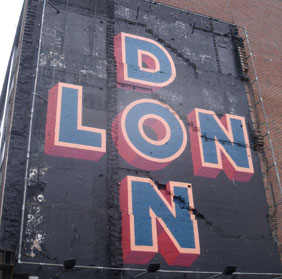The Mayor of London Sadiq Khan, and his Deputy Mayor for Culture and the Creative Industries, Justine Simons, have requested a review of the Metropolitan Police Form 696 Risk Assessment. As the Mayor says, this follows concerns that the form unfairly targets grime, garage and R ‘n’ B acts.
A version of the Form 696 Risk Assessment is used by several other police forces around England, including in Leicestershire, West Yorkshire and Hertfordshire.
Form 696 is designed by the Met to allow the management of licensed premises, event security and police to work together to minimise the risk of serious violent crime at promoted music events. The use of the form is voluntary, though in a few cases completion of the form is a condition of premises’ licences.
The Night Czar and Chair of the London Music Board, Amy Lamé convened a meeting to consider how the Board can work with the Met to ensure the safety of events, without compromising the capital’s music scene. The London Music Board includes industry bodies, DJs, artists, promoters, venues, local authorities and union officials.
Guidance from the Met recommends that venues and promoters consider completing Form 696 when promoting events that mainly feature DJs or MCs performing to a recorded backing track.
Sadiq Khan says he wants London’s night life to be the most diverse in the world and has tasked Amy Lamé with bringing together people and businesses from across night-time industries. Artists, promoters and venues with an interest in Form 696 attended the meeting, including Crispin Parry (British Underground), DJ/Producer Funk Butcher (aka Kwame Safo), Dominic Madden (Electric Brixton), Jane Beese (Roundhouse), Auro Foxcroft (Village Underground), DJ Ritu and DJ Danny Rampling.
Sadiq Khan, said: “The safety of Londoners is my number-one priority. It’s vital that live music events can take place safely and that the Met can help venues to lessen the risk of violent behaviour. This risk assessment shouldn’t compromise the capital’s vibrant grassroots music industry or unfairly target one community or music genre, which is why the Met is reviewing their Form 696 process, working together with London’s promoters, venues and artists to develop a system that makes sure London’s legendary music scene thrives whilst keeping Londoners safe.”
Met Supt Roy Smith said: “The use of the Form 696 enables us to provide advice and guidance on the risk posed by an event and suggest measures which can be taken to manage those risks. It is important to note that so far in 2017 no events have been cancelled at the request of the police following the submission of a Form 696. We welcome the opportunity to work with the music industry and colleagues at the Mayor’s office to review the Form 696 process and ensure that it remains fit for purpose and to listen to any concerns which are raised. This special session of the London Music Board has provided an important opportunity for us to reality check the process and act on feedback.”










